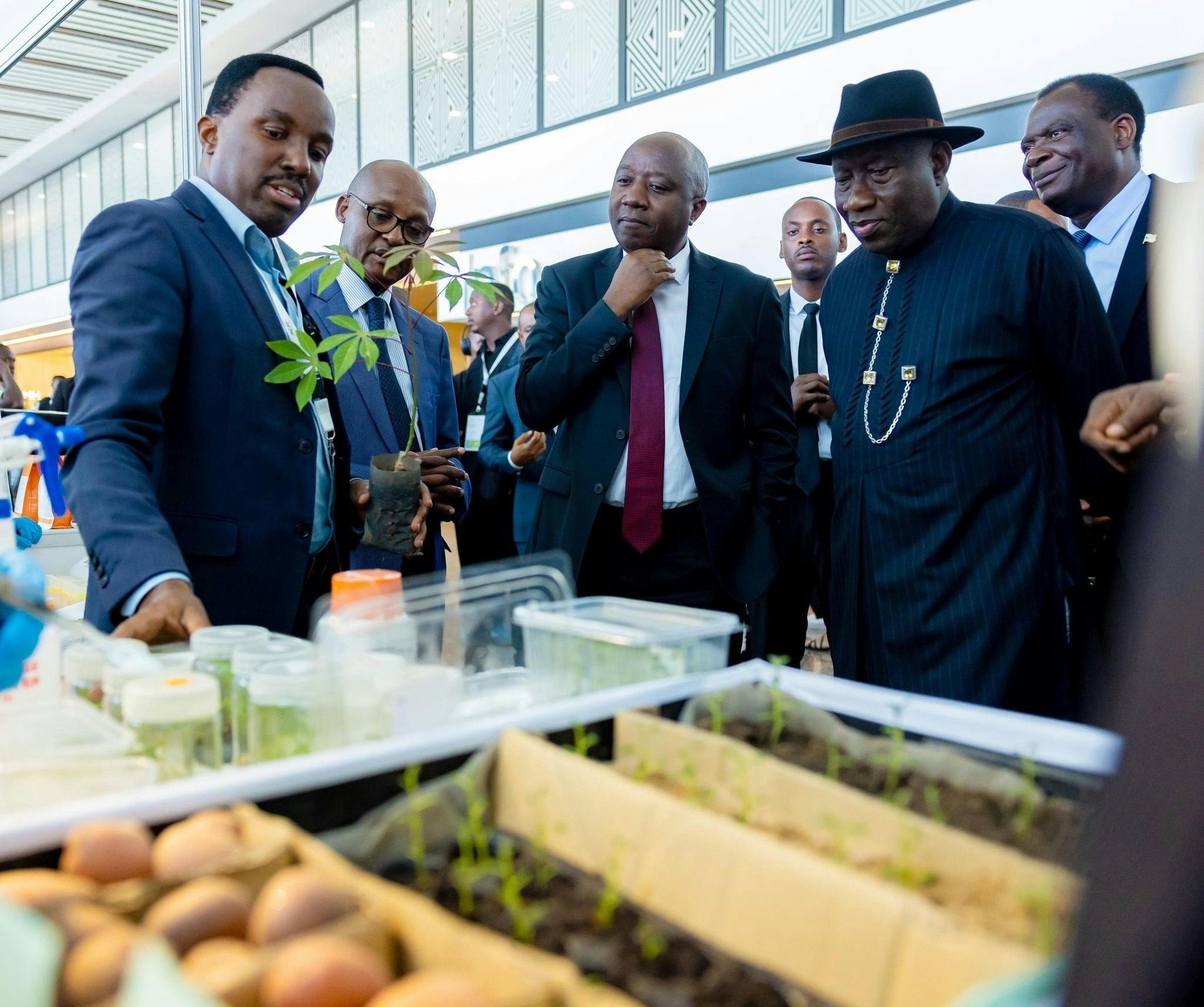The African Conference on Agricultural Technology (ACAT) 2025 recently concluded with a resounding call to place farmers at the heart of innovation. Held in Kigali, Rwanda, under the theme ‘NextGen Ag-Tech Solutions for Africa's Farmers,’ the four-day event brought together over 1,000 stakeholders. These included policymakers, researchers, private sector leaders, farmers, media and others to tackle pressing challenges in food security and climate resilience.
A striking revelation emerged: despite over 5,000 Ag-Tech tools developed for Africa, only 0.5 per cent are effectively reaching farmers. “Farmers must be co-creators, not just recipients, of technology,” urged Dr. Canisius Kanangire of AATF.
With a shared goal of strengthening food security and sustainability, the event spotlighted the urgency of transforming African agriculture through smart, inclusive technology. “Feeding Africa is not a choice but a must,” declared Rwanda’s Agriculture Minister Dr. Mark Bagabe Cyubahiro, setting the tone for four days of intense, action-driven dialogue.
Against a backdrop of rising global hunger and climate threats, Rwanda’s Prime Minister Dr. Edouard Ngirente called upon African nations to integrate technology into agriculture by empowering young innovators, mitigating risks through insurance and climate-resilient seeds, and expanding digital farming tools to enhance food security and promote sustainable growth.
He urged all the stakeholders attending the conference to use the ACAT platform to not only share knowledge but also forge practical partnerships that can scale proven innovations and bring real transformation to smallholder farmers who are the true custodians of Africa’s food systems. “Let us remember that technology is not just about tools and platforms; it is about people,” Dr. Ngirente added.
He further called upon African nations to integrate technology into agriculture by empowering young innovators, mitigating risks through insurance and climate-resilient seeds, and expanding digital farming tools to enhance food security and promote sustainable growth.
H.E. Dr. Goodluck Jonathan, Nigeria’s former President, emphasized that transforming Africa’s agriculture can only happen if countries and institutions in the region collaborate across borders and sectors. “African governments must work hand-in-hand with private sector players, research institutions, civil society, and most importantly, with the farmers themselves to foster and sustain a new era of farming and food production. It is a high paced era that leaves no room for excuses. Africa must make progress and move forward,” Dr. Jonathan remarked.
He applauded Rwanda’s Equity bank for its commitment to set aside loans rating at 30 per cent for agriculture sector. Through high-level plenaries, technical panels, strategic dialogues, and live demonstrations, ACAT 2025 highlighted practical pathways for scaling sustainable, inclusive, and climate-resilient Ag-Tech. Across sessions, one message resonated loudly: Farmers must be co-creators and not passive recipients of innovations/technologies. Speakers advocated for the integration of indigenous knowledge systems, context-aware product design, and farmer-generated data to inform decisions across the Ag-Tech value chain, from design and finance to regulation and policy.
The conference challenged African research institutions to go beyond academic publishing and start delivering on-ground impact. “Shelves full of unused research must be demolished,” said one panelist, urging closer partnerships between universities, startups, and private-sector accelerators to commercialize innovation.
Women and youth were recognized as key drivers of agricultural transformation. A panelist reinforced a powerful principle: “No technology is successful unless it works for women and marginalized farmers.” ACAT 2025 closed with a clear roadmap: farmer-led innovation, inclusive policies, and partnerships to bridge the “last mile.”
Emmanuel Mugisha is the Executive Secretary, Rwanda Media Commission

